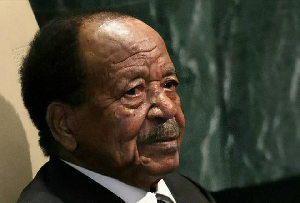After the opening of a liaison office in Cote d’Ivoire in November 2013, the Standard Bank, the South African bank considered to be the largest lender in Africa, is planning to widen its presence into the UEMOA and CEMAC zones, particularly in Cameroon.
According to the head of the Standard Bank’s Investment and Corporative Division for Africa, Greg Goeller, apart from the 148 million customers and a nominal GDP combined GDP of 167 billion dollars (around 83.5 trillion FCfa), CEMAC and UEMOA countries have a major advantage which “lies in the fact that their currency (the Cfa franc) is guaranteed by the French Treasury while the currencies in the two monetary unions are carried by the euro. This provides investors with a lot of stability as far as monetary risk is concerned.”
The Standard Bank also explains the institution’s interest in West and Central African countries by highlighting that, “South African companies and those of a large section of the western world, excepting France, have not traditionally played a major role in French-speaking Africa.
But the world simply can’t afford to continue ignoring the countries’ potential for economic growth.” For Mr Goeller, “although direct foreign investment in French-speaking Africa has largely been linked to mining and natural resources, which accounts for 83.9% of the total value of transactions made in Gabon, Cote d’Ivoire, Cameroon, Guinea, Senegal and Sierra Leone and the Congo in the 2008-12 period, it is time for a change.”
Standard Bank believes that other sectors, including oil and gas, infrastructure, telecommunications, rapid-growth consumption goods and agriculture will attract more and more investors to Africa.
This reality is already apparent in Cameroon where the government is engaging in major energy projects (electricity, natural gas, renewable energies and oil), mining (iron from Mbalam and Nkout, bauxite from Minim Martap, diamonds from Mobilong), infrastructure (national railway service) and agro-industrial production, most of which still need financing.
Furthermore, with its bilingualism, Cameroon has a comparative advantage relative to other French-speaking countries, for which Mr Goeller fears that “language may at times be a slight obstacle” for doing business with English-speaking companies such as Standard Bank.
Infos Business of Saturday, 10 May 2014
Source: businessincameroon.com













